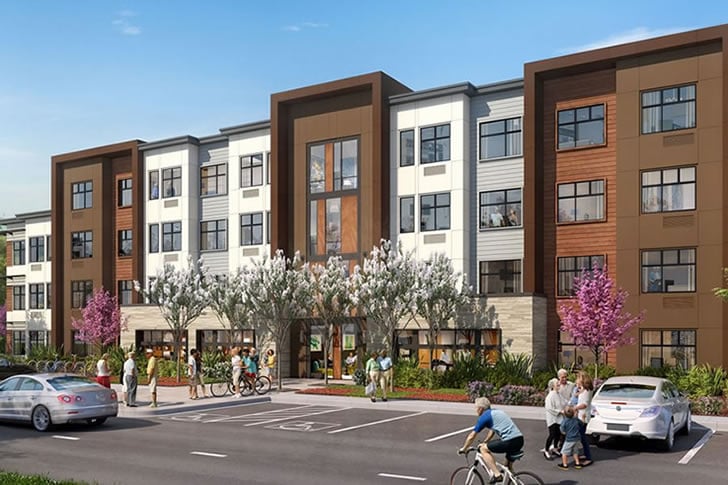Choosing senior apartments involves carefully considering community and accessibility. Use our tips to find a place where comfort, convenience, and camaraderie meet.

Understanding Senior Apartments
Senior apartments are designed with the needs of older adults in mind. These living spaces provide a mix of independent living and community resources, tailored to enhance the quality of life for seniors. Whether downsizing or seeking a more manageable living arrangement, senior apartments offer various advantages that cater specifically to older adults.
Importance of Accessible Design
Key Accessibility Features to Look For
Elevators and Ramps:
Ensure that the building has well-functioning elevators or ramps for easy access to different floors.Wide Doorways and Hallways:
These allow for easier navigation, especially for those using mobility aids like wheelchairs or walkers.Bathroom Accessibility:
Look for grab bars, roll-in showers, and non-slip flooring to minimize the risk of falls.Kitchen Accessibility:
Lowered countertops, easy-to-reach shelves, and user-friendly appliances can significantly aid independent living.Emergency Features:
Check for emergency call systems and well-lit corridors to ensure safety.Benefits of Accessible Apartments
Increased Independence:
Accessibility features enable seniors to perform daily tasks without constant assistance.Reduced Risk of Accidents:
Proper design can prevent falls and other accidents, promoting a safer environment.Enhanced Comfort:
Easy-to-use facilities and features contribute to a more comfortable living space.Building a Supportive Community
Importance of Community for Seniors
Social Interaction:
Engaging with peers helps combat loneliness and promotes mental well-being.Participation in Activities:
Community events, clubs, and classes provide opportunities for learning and enjoyment.Shared Resources:
Access to shared amenities like fitness centers, libraries, and recreational rooms enhances the quality of life.Tips for Evaluating Community
Visit Several Times:
Visit the apartment complex at different times to observe the community dynamics.Talk to Current Residents:
Speaking with current residents can provide insights into the community atmosphere and its pros and cons.Review the Activity Calendar:
Check the schedule of events and activities to ensure they match your interests.Assess the Staff:
Friendly and responsive staff can greatly enhance the living experience and sense of community.Community Features to Look For
Common Areas:
Well-maintained and comfortably furnished areas encourage social interaction.Activity Programs:
A diverse range of activities caters to various interests and promotes active engagement.On-Site Services:
Access to health services, fitness programs, and other facilities can be beneficial.Location and Surroundings
Proximity to Essential Services
Medical Facilities:
Ensure that hospitals, clinics, and pharmacies are conveniently located.Public Transportation:
Accessible and reliable transportation options are crucial for maintaining independence.Grocery Stores and Shopping:
Close proximity to shopping centers makes running errands easier.Evaluating the Neighborhood
Safety:
Look into crime rates and the overall safety of the neighborhood.Walkability:
Check if paths are well-maintained for easy walking, and if there are benches to rest.Parks and Recreation:
Green spaces and parks offer opportunities for relaxation and outdoor activities.Budget Considerations
Understanding Costs
Rent and Additional Fees:
Apart from rent, inquire about extra charges such as maintenance, utilities, and community fees.Insurance:
Renters' insurance can provide coverage for personal belongings and liability.Health Care Costs:
Consider potential expenses related to health services provided within the community.Financial Assistance Options
Public sector Programs:
Check eligibility for public sector assistance programs that can help with housing costs.Non-Profit Organizations:
Some non-profits offer financial support or affordable housing options for seniors.Veterans Benefits:
Veterans may be eligible for housing assistance through specific veteran programs.Making the Final Decision
Weighing Your Options
After gathering all the necessary information, make a list of pros and cons for each apartment complex. Consider factors like accessibility, community atmosphere, location, and cost.
Seek Opinions
Discuss options with family and friends or seek advice from professionals like real estate agents or senior living advisors. Their insights can provide additional perspectives that may influence your decision.
Trust Your Instincts
Ultimately, choose a place where you feel comfortable, safe, and happy. Trust your instincts to guide you to a senior apartment that suits your needs and lifestyle.
Conclusion
Finding the perfect senior apartment involves balancing accessibility, community engagement, and budget considerations. By carefully evaluating each aspect, you can find a living arrangement that supports your independence, boosts your quality of life, and offers a vibrant, supportive community.









